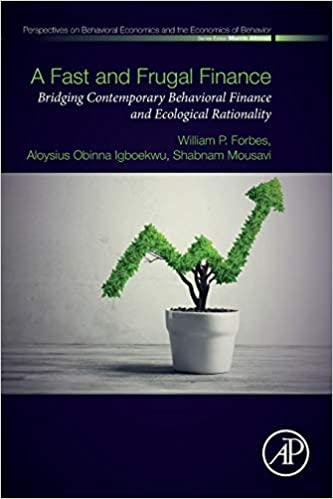Question
Lasting Impressions Company: Lasting Impressions (LI) Company is a medium-sized commercial printer of promotional advertising brochures, booklets, and other direct-mail pieces. The firm's major clients
Lasting Impressions Company: Lasting Impressions (LI) Company is a medium-sized commercial printer of promotional advertising brochures, booklets, and other direct-mail pieces. The firm's major clients are ad agencies based in New York and Chicago. LI has not been able to compete effectively with larger printers because of its existing older, inefficient presses. The firm is currently having problems cost-effectively meeting run-length requirements as well as meeting quality standards. The general manager has proposed the purchase of one of two large, six-color presses designed for long, high-quality runs. The purchase of a new press would enable LI to reduce its cost of labor and therefore the price to the client, putting the firm in a more competitive position. The key financial characteristics of the old press and of the two proposed presses are summarized in what follows:
Old press: Originally purchased 3 years ago at an installed cost of $395,000, it is being depreciated under MACRS using a 5-year recovery period. The old press has a remaining economic life of 5 years. It can be sold today to net $405,000 before taxes; if it is retained, it can be sold to net $130,000 before taxes at the end of 5 years.
Press A: This highly automated press can be purchased for $830,000 and will require $60,000 in installation costs. It will be depreciated under MACRS using a 5-year recovery period. At the end of the 5 years, the machine could be sold to net $260,000 before taxes. If this machine is acquired, it is anticipated that the current account changes shown in the following table would result.
| CASH | $30,000 |
| ACCOUNTS RECEIVABLE | $90,000 |
| INVENTORIES | ($19,000) |
| ACCOUNTS PAYABLE | $28,000 |
Press B: This press is not as sophisticated as press A. It costs $610,000 and requires $37,000 in installation costs. It will be depreciated under MACRS using a 5-year recovery period. At the end of 5 years, it can be sold to net $190,000 before taxes. The acquisition of this press will have no effect on the firm's net-working capital investment. The firm estimates that its earnings before depreciation, interest, and taxes with the old press and with press A or press B for each of the 5 years would be as shown in Table below. The firm is subject to a 20% tax rate. The firm's cost of capital, r, applicable to the proposed replacement is 13%.
EBDT FOR DTI PRESS SCENARIOS
| Year | Old Press | Model A | Model B |
| 1 | 135,000 | 255,000 | 214,000 |
| 2 | 135,000 | 295,000 | 214,000 |
| 3 | 135,000 | 305,000 | 214,000 |
| 4 | 135,000 | 335,000 | 214,000 |
| 5 | 135,000 | 355,000 | 214,000 |
Using Excel (and showing formulas), and the template below, please calculate the following:
A. For each of the two replacement presses, calculate:
- Initial Investment
-Operating cash inflows (Note: be sure to consider the depreciation in year 6.)
-Terminal cash flow. (Note: this is at the end of year 5.)
B. Calculate for each alternative the following decision methods:
-Payback Period
-NPV
-IRR
C. Recommend which, if either, of the presses, should be acquired given the following conditions:
-Unlimited funds
-Capital rationing



Step by Step Solution
There are 3 Steps involved in it
Step: 1

Get Instant Access to Expert-Tailored Solutions
See step-by-step solutions with expert insights and AI powered tools for academic success
Step: 2

Step: 3

Ace Your Homework with AI
Get the answers you need in no time with our AI-driven, step-by-step assistance
Get Started


